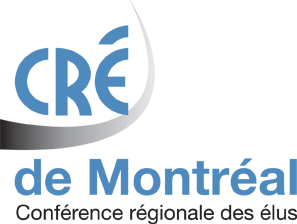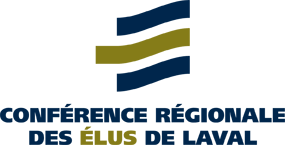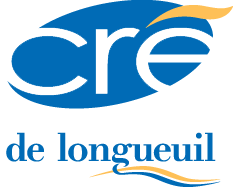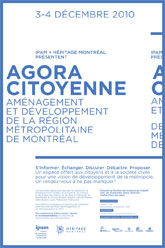

- Press release

- Presentation

- Background

- Objectives

- Programmation

- Organizing
committee 
- Contact us

An initiative possible with the help of






Citizens’ Agora on Land-Use and Development in the Montreal Metropolitan Region
December 3&4 2010
UQAM, Pavillon Sherbrooke
200, Sherbrooke W st, Montreal
Register before November 30, 2010
Program
The Agora aims to contribute to the preparation of the new metropolitan land-use and development plan for the Communauté métropolitaine de Montréal (CMM), as stipulated in Bill 58. The Agora provides citizens, academics, and civil-society organizations in the Montréal region with a forum in which to collectively reflect on the plan’s contents and implementation and to develop proposals related to three themes: Green Prosperity, Land-Use and Mobility, and Quality of Life in our Living Environments.
» Download the program (pdf)Friday, december 3, 2010
- 2:00 p.m. Registration
- 2:30 p.m. Introduction
- Florence Junca-Adenot, Agora moderator and Director of Forum Urba 2015, UQAM.
- 2:40 – 2:50 p.m. Welcoming Address
- Phyllis Lambert, President, Institut de politiques alternatives de Montréal (IPAM).
Dinu Bumbaru, Policy Director, Heritage Montreal. - 2:50 – 3:20 p.m. Opening Speech
- Laurent Lessard, Ministre des Affaires municipales, des Régions et de l’Organisation des territoires (MAMROT), or his representative.
Gérald Tremblay, President of the Communauté métropolitaine de Montréal (CMM). - 3:20 – 4:50 p.m. Conferences: Other Regions’ Experiences.
- “Planning in the Boston region: The process and citizens’ involvement.”
Timothy G. Reardon, Planner, Boston Metropolitan Planning Council (in English). - “La planification stratégique intégrée pour le Grand Lyon depuis 20 ans: écueils et succès de la
collaboration entre acteurs publics à l’échelle métropolitaine.”
Franck Scherrer, former member of the Conseil de développement du Grand Lyon and Director of the Institut d’urbanisme, Université de Montréal. - “Integrated land-use and transportation planning in Vancouver.”
Ken Cameron, official in charge of planning for Greater Vancouver (in English). - 4:50 – 5:40 p.m. Discussion Period
- 5:40 p.m. Cocktails and discussion among participants
Saturday, December 4, 2010
- 8:00 – 8:05 a.m.
- Recap of the issues and proceedings.
Florence Junca-Adenot, Agora moderator and Director of Forum Urba 2015, UQAM. - 8:05 – 8:35 a.m. Vision
- “Making a Great Place, Elements for Successful Metropolitan Planning.”
Michael Burton, Vice Provost, Portland State University, former mayor of Portland (in English). - 8:35 – 9:15 a.m. Quality of Life in Our Environments
- Moderator : Pierre Bélanger, Directeur général, Association québécoise du transport intermunicipal et municipal.
Speakers : Daniel Gill, Professor, Institut d’urbanisme, Université de Montréal.
Guy Garand, Directeur général, Conseil régional de l’environnement de Laval.
Response : Louis Drouin, physician, Public Health Department, Agence de la santé et des services sociaux de Montréal.
Reporter : Jean Paré, urban planner, former member of the Office de consultation publique de Montréal - 9:15 – 10:40 a.m.: Discussion
- 10:40 – 10:50 a.m.: Pause
- 10:50 – 11:30 a.m. Green Prosperity
- Moderator : Sydney Ribaux, Executive Coordinator, Équiterre.
Speakers : Marcel Côté, Founding Associate, Groupe SECOR.
(Speakers to be confirmed)
Response : Hélène Bergeron, Managing Director, South Shore Chamber of Commerce and Industry.
Reporter : Henry Aubin, journalist, The Gazette - 11:30 a.m. – 12:55 p.m.: Discussion
- 12:55 – 2:00 p.m.: Buffet
- 2:00 – 2:40 p.m. Land-Use and Mobility
- Moderator : Suzanne Lareau, President and General Manager, Vélo Québec.
Speakers : Pierre Giard, Général Manager, Société de transport de Laval.
Alexandre Turgeon, Président exécutif, Vivre en ville.
Response : Paul Lewis, Professor, Institut d’urbanisme, Université de Montréal.
Reporter : Yves Archambault, urban planner, Professor, Urban Studies, UQAM. - 2:40 – 4:00 p.m. Discussion.
- 4:00 – 4:45 p.m. Plenary Assembly Reports.
- 4:45 – 4:55 p.m. General Observations.
- Gérard Beaudet, Director of the Observatoire sur la mobilité, Institut d’urbanisme, Université de Montréal.
- 4:55 – 5:00 p.m. Concluding Remarks, Follow-Up, Expression of Thanks.
- Florence Junca-Adenot, Agora moderator and Director of Forum Urba 2015, UQAM.
Issues to talk about in each theme
Block 1 – "Green" Prosperity
| Issues | Questions |
|---|---|
|
|
Block 2 – Land-Use and Population Mobility
| Issues | Questions |
|---|---|
|
|
Block 3 – Quality of Living Environments and Principles of Sustainable Development
| Issues | Questions |
|---|---|
|
|






 IPAM's Facebook Page
IPAM's Facebook Page